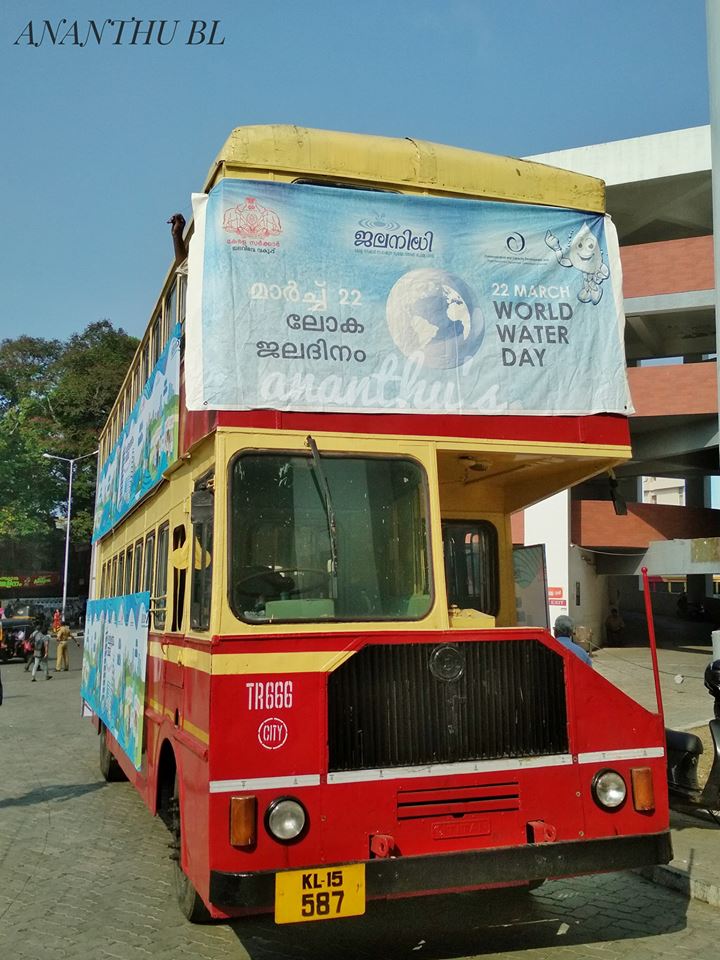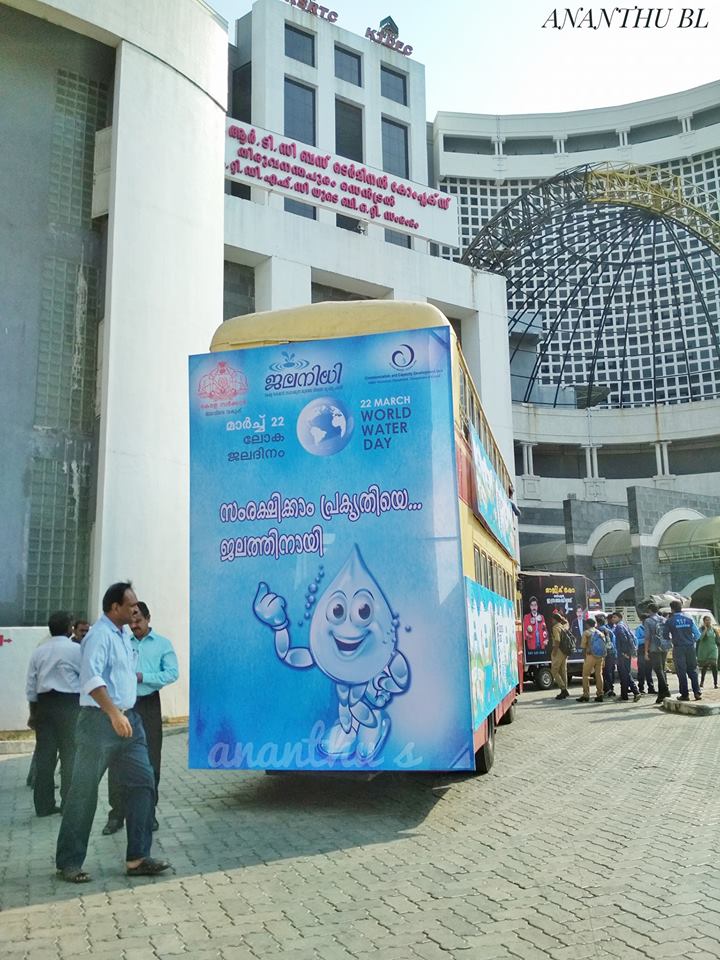World Water Day to be observed in a big way
World Water Day is an annual observance day on 22 March to highlight the importance of freshwater. It is also used to advocate for the sustainable management of freshwater resources. World Water Day is celebrated around the world with a variety of events. These can be educational, theatrical, musical or lobbying in nature. The day can also include campaigns to raise money for water projects. The first World Water Day, designated by the United Nations, was commemorated in 1993.
UN-Water selects a theme for each year. The theme for 2018 is “Nature for Water” to encourage people to “look for the answer in nature”. For example, nature-based solutions could be implemented to reduce floods, droughts and water pollution and to protect ecosystems.





Photos – Ananthu BL
Previous themes for the years 2015 to 2017 were “Water and Sustainable Development”, “Water and Jobs'” and “Why waste water?” (which included asepcts of wastewater and reuse). The focus on universal access to clean water, sanitation and hygiene (WASH) is in line with the targets of Sustainable Development Goal 6.
The UN World Water Development Report is released each year around World Water Day.
World Water Day is an international observance day. The intention is to inspire people around the world to learn more about water-related issues and to take action to make a difference.
The global water crisis is one of the issues that calls for action. The challenges include water scarcity, water pollution, inadequate water supply and the lack of sanitation for billions of people in less developed countries. The day brings to light the inequality of access to WASH services and the need to assure the human right to water and sanitation.
The theme in 2018 explores how nature can be used to overcome the water challenges of the 21st century. This could be in the form of nature-based solutions to reduce floods, droughts and water pollution and protect ecosystems. Restoring wetlands, implementing constructed wetlands, green roofs, green infrastructure, planting new forests, reconnecting rivers to floodplains, are some examples. Each of these use natural processes to rebalance the water cycle and improve human health and livelihoods



















